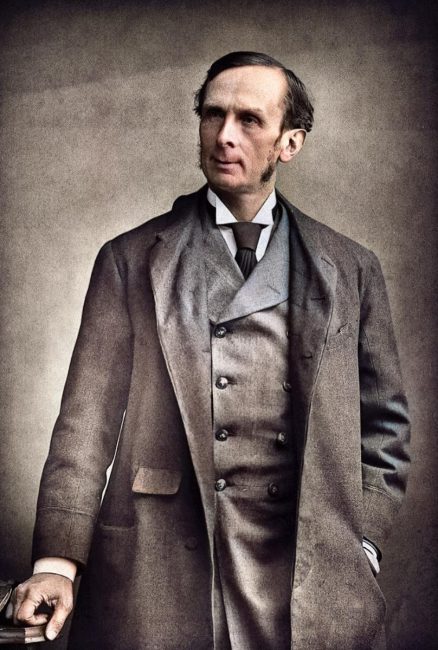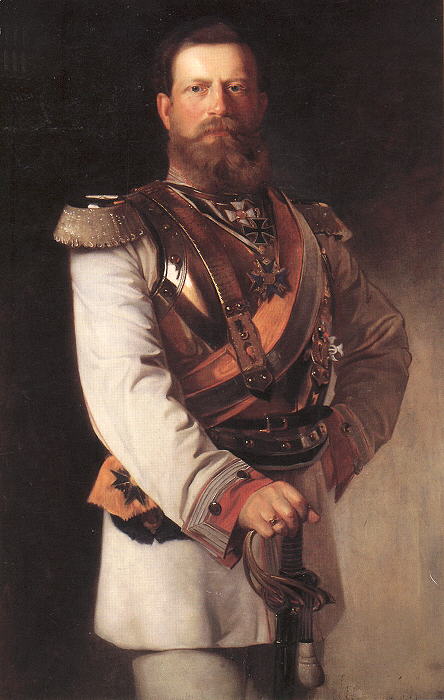
Morell Mackenzie (1837-1892)
On July 7, 1837, British physician Morell Mackenzie was born. Mackenzie was one of the pioneers of laryngology in the United Kingdom. He is best remembered for his role at the centre of a bitter international controversy over the death of Emperor Frederick III of Germany. In his book, ‘The Fatal Illness Of Frederick The Noble’ (1888), Mackenzie describes his care of laryngeal cancer in the Crown Prince, later Emperor Frederick the Noble. He had been accused of medical malpractice by German physicians following the emperor’s death on 15 June 1888.
Youth and Education of Morell Mackenzie
Morell Mackenzie started his medical studies at the London Hospital. He further studied in Paris, Vienna, and Budapest. In Hungary, Mackenzie studied the use of the newly invented laryngoscope under Johann Czermak. He earned his medical degree in 1862 and won the Jacksonian prize at the Royal College of Surgeons for an essay on the ‘Pathology and Treatment of Diseases of the Larynx: The Diagnostic Indications to include the Appearance as Seen in the Living Person‘. Around that period, Morell Mackenzie also became the first to refer to abductors and adductors to describe the muscles that govern the opening and closing of the glottis.
A Specialist for Diseases of the Throat
After Mackenzie decided to focus his studies on the throat, the Hospital for Diseases of the Throat in King Street was founded, mostly due to Mackenzie’s initiative. Mackenzie managed to rapidly increase his reputation throughout Europe. Indeed, his fame also reached the crown prince of Germany, afterwards the Emperor Frederick III.

Frederick as crown prince, 1874, by Heinrich von Angeli
The Case of Emperor Frederick III
The prince suffered a throat illness and the physicians who had previously attended him, including Karl Gerhardt and Ernst von Bergmann,[4] had diagnosed his ailment on 18 May as cancer of the throat. However, basing his opinion on a microscopical examination by the pathologist Rudolph Virchow,[5] Morell Mackenzie insisted that the prince’s disease was not necessarily cancerous. Mackenzie found that a surgery was not necessary and since the growth might well be a benign one it would be curable by other treatment. Virchow further argued that a surgery to remove the larynx had never been performed without the death of the patient. Mackenzie then suggested a tracheotomy.
A “Political” Illness
The question whether the prince suffered from cancer or not was not only personal but highly political. It was then unclear whether the German throne could be occupied by someone who sufferd from a serious illness like cancer. It is further believed that some of the involved doctors were influenced by political considerations. Frederick was taken to England to be treated and Morell Mackenzie was knighted in September 1887 for his services, and appointed a Grand Commander of the Royal House Order of Hohenzollern.
Von Bergmann’s Mistake
However, in November it was ultimately admitted that he indeed suffered from cancer. His surgery was performed by Ernst von Bergmann who missed the incision in the trachea and forced the cannula into the wrong place. This caused Frederick to cough and bleed. Bergmann then placed his forefinger into the wound to enlarge it and the bleeding subsided after about two hours. This resulted in an abscess in Frederick’s neck, producing pus which gave the new Emperor discomfort for the remaining months of his life. It is believed that Frederick later asked “Why did Bergmann put his finger in my throat?” and stated that “Bergmann ill-treated [me]”.
The Fatal Illness of Frederick the Noble
Not only did Prince Frederick’s fatal illness caused some medical controversy for many years, but also heated arguments between Morell Mackenzie and the German medical world evolved. The involved German doctors published an account of Frederick’s case and Mackenzie replied by a work entitled The Fatal Illness of Frederick the Noble, which was published in 1888. Mackenzie was then censured by the Royal College of Surgeons.
After this sensational episode in his career, the remainder of Sir Morell Mackenzie’s life was uneventful, and he died somewhat suddenly in London, on 3 February 1892, at age 44.
Christopher Clarke, The Geopolitics of Revolution in 1848, [7]
References and Further Reading:
- [1] Morell Mackenzie Biography
- [2] Morell Mackenzie at Britannica Online
- [3] Morell Mackenzie at Today in Science
- [4] Ernst von Bergmann and Aseptical Surgery, SciHi Blog
- [5] Rudolph Virchow – the Father of Modern Pathology, SciHi Blog
- [6] Morell Mackenzie at Wikidata
- [7] Christopher Clarke, The Geopolitics of Revolution in 1848, SLC Tech @ youtube
- [8] Chisholm, Hugh, ed. (1911). “Mackenzie, Sir Morell“. Encyclopædia Britannica. Vol. 17 (11th ed.). Cambridge University Press. p. 253.
- [9] Timeline of Deaths by Laryngeal Cancer, via DBpedia and Wikidata





